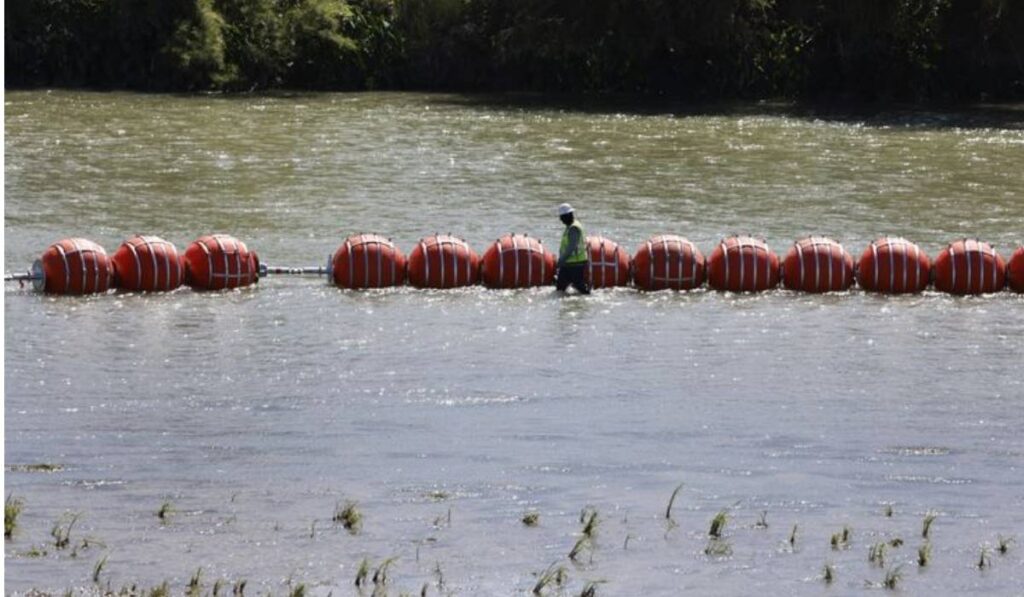
It has long been established that federal laws surpass all state laws that are in conflict with them. And states have no right to prevent federal officials from carrying out their official duties.
This principle is in the Constitution. It says federal law “shall be the supreme law of the land, and the judges in every state shall be bound thereby.” However, Texas seems to believe it is special and has been defying that principle.
Last month, a federal appeals court granted the state permission to erect razor wire barriers. The barriers prevent federal border patrol officers from doing their jobs. However, the Court also ordered the border patrol not to cut these wires except in very limited circumstances.
The United States Court of Appeals of the Fifth Circuit, a far-right court dominated by MAGA judges, passed the decision. They are famous for frequently handing down decisions that conflict with existing law.
ALSO READ: TV Hosts Ana Navarro and Sara Haines Clash Over How Slavery Should Make White Kids Feel
On Monday, the Supreme Court responded by handing down a brief order in Department of Homeland Security v. Texas blocking this Fifth Circuit order. The order drew a 5-4 vote. This means four justices seem to believe that Texas can use razor wire to restrain federal officials.
The four justices who voted for Texas include Justices Clarence Thomas, Samuel Alito, Neil Gorsuch, and Brett Kavanaugh. Chief Justice John Roberts and Justice Amy Coney Barrett, both Republican appointees, voted with the Court’s three Democratic justices.
The Texas case was borne of the state’s attempt to limit border crossings in Eagle Pass, Texas. They did this by lining almost 30 miles of the US-Mexico border with razor wire.
The barrier is one of several steps Texas’s government has taken in an attempt to limit migration, often in defiance of the Biden administration and federal law. Texas also enacted a law that allows state judges to issue deportation orders, a fundamental power of the federal government.
POLL—Should the U.S. Government Create a Path to Citizenship for Undocumented Immigrants?
The state is also in the middle of another court fight regarding a floating barrier of buoys it erected in the Rio Grande. The immediate issue for the Supreme Court is not whether Texas has permission to construct such a barrier against the wishes of the federal government.
Rather, the question in this case is whether the state of Texas may obtain a court order forbidding federal agents from cutting the razor wire barriers when they need to do so in order to perform their official duties.
ALSO READ: OSHA Blames Mississippi Slaughterhouse for the Death of Migrant Teen Sucked Into Machinery
Despite the Fifth Circuit’s decision, Texas’s arguments in favor of the order are too weak. The Constitution is also against them, so this case is an open-and-shut case for the federal government. Texas will conform for as long as it is a part of the United States.
You Might Also Like:
Gallery Manager Fears Picasso, Rembrandt, and Goya Works Lost in Seattle Art Gallery Fire
John Hopkins Center Names Third Grader as One of the World’s Brightest Students
Florida Board of Education Bans DEI and Sociology Class From State Colleges
“This Practice Is Arbitrary and Unlawful!” Court Slams State Agency’s “1-Mile Rule” Decision
California Announces Covid-Positive Residents Can Now Attend School and Work
